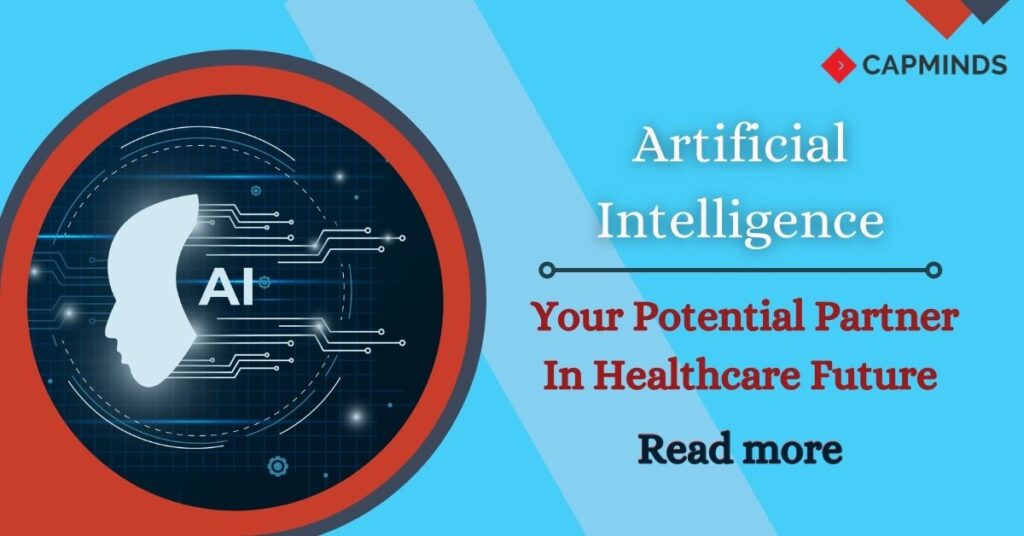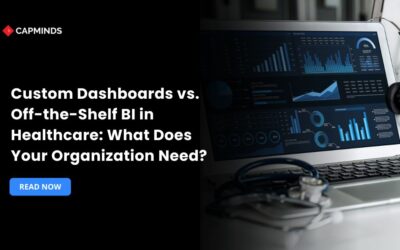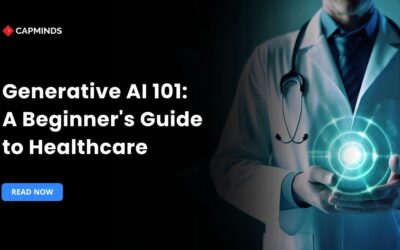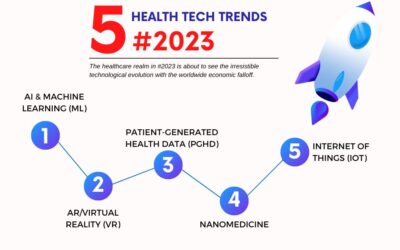Artificial Intelligence: Your Potential Partner In Healthcare’s Future

Have you ever thought of Artificial Intelligence changing the way you live now? We have, but only to some extent. In this 21st century, we are witnessing tremendous changes happening around us technologically. AI is the new mantra now. It is in every aspect of our life from smart assistants, self-driving cars, even virtual travel bookings, and whatnot.
We wouldn’t have believed it if someone says that self-driving cars can communicate themselves with customer care bots or that the manual work at car manufacturing units or delivery and packing units is handled by robots with artificial intelligence. Of course, the younger generation knows the value of AI in their world.
More sectors and industries are taking into consideration the ways to apply or implement Artificial Intelligence, as it’s been improving like anything, to increase efficiency and consequences, including healthcare.
With the increase in day-to-day demands of a geriatric global population that assure continuous pressure on the already worn-out system, the future of AI, the rescuer, will come as a greater contribution to the health sector.
AI In Predicting The Future
AI is being put into work in predictive analysis to traverse patient databases and predict the probability of certain diseases/disorders, in medicine. By referring to previous studies, it is being proven in some cases that AI can detect predominantly hard-to-identify or diagnose conditions, including rare hereditary and autoimmune diseases.
Significant increases in efficiency, reduction in spending, and enhanced patient care and health outcomes can be achieved by creating automated processes using medical AI.
Several AI models which can surmount physicians, particularly in radiology diagnostic accuracy already exist in fact. This reduces human errors ultimately.
According to previous studies, an individual’s health outcomes are estimated to roughly be influenced by 40% to 50% by behavior and 20% by their physical and social environment, while genetics account for only 30%. External factors such as social factors and lifestyle choices may be merged into these models, as AI evolves.
The physician’s ability to choose the best path for treatment or medication for each individual would be greatly improved by utilizing an AI model that evaluates an individual’s combined genetic and behavior/social data.
Moreover, the cooperation of complicated social factors that play a role in shaping health disparities between ethnic groups and different socio-economic groups could be seized and possibly refined like never before.
Get ready to be changed in less than a decade with AI
Artificial intelligence (AI) is transforming the way we interact, consume information, and obtain goods and services across industries. In health care, AI is already changing the patient experience, how clinicians practice medicine, and how the pharmaceutical industry operates. The journey has just begun.
Artificial intelligence is not one technology, but rather a collection of them. Most of these technologies have immediate relevance to the healthcare field, but the specific processes and tasks they support vary. Some of the particular AI technologies are listed below.
- Rule-based expert system
- Physical robots
- Natural language processing
- Machine learning
- Robotic Process Automation (RPA)
Related: Click here to learn more about Robotic Process Automation.
The technologies which were mentioned above are individual ones but they are being increasingly combined and integrated.
Robots are getting AI-based “brains” and image recognition is being integrated with RPA.
According to a source, by 2030, AI will access multiple sources of data to reveal patterns in disease and aid treatment and care.
This will help healthcare systems to predict an individual’s risk of certain diseases and suggest preventative measures.
Diagnostic and treatment applications, patient engagement, adherence applications, and administrative applications are some of the healthcare applications which use or may use more AI in the future.
The impacts AI makes in the present and will make in the future the healthcare systems are,
- It improves clinician and provider productivity and the quality of care they deliver
- Enhances patient engagements on their own, and simplifies patient access to care
- Personalizes medical treatments by leveraging analytics to mine significant, previously untapped stores of non-codified clinical data
- Reduces the cost and personalizes medical treatment by leveraging analytics
- AI-powered predictive care can help patients from going into emergencies
- Results in better patient and staff experience
- Various hospitals can be connected through interoperability and can provide cooperative care.
Artificial Intelligence is a vast topic and it requires days to cover. It has had a huge impact on many industries in recent years and will continue to benefit them in the future.
COVID-19 has accelerated the adoption of technology by many sectors. Both the private and the public are forced to use AI for their advancement and growth. In the last few years, AI has enabled many innovations and driven the proliferation of technologies like IoT, robotics, analytics, and voice assistants.
Visit CapMinds to avail all the assistance and services you need to make your healthcare services advanced by making use of our advanced healthcare AI solutions. We will help you know how to put AI and other related services into your practice efficiently. Reach us for a demo now.
“Let’s make your services advanced with AI, together”



